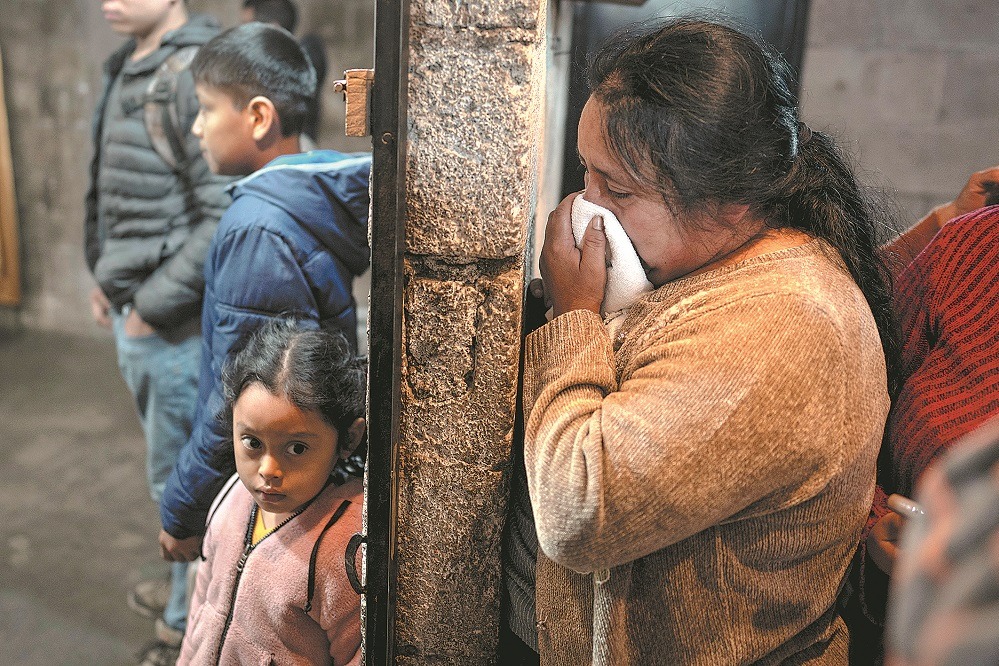Court vacancy ups stakes for election
By AI HEPING in New York | China Daily Global | Updated: 2020-09-28 23:38

For the Republican Party in the United States, the biggest judicial prize of all is now within reach — a sixth seat on the Supreme Court that would tip it firmly to the conservative side.
President Donald Trump is pushing to fill the Supreme Court seat vacated by the death of Justice Ruth Bader Ginsburg on Sept 18 at the age of 87 from cancer. On Sept 25, Ginsburg, who served 27 years on the court, became the first woman to lie in state in the US Capitol. The next day Trump introduced her replacement: Judge Amy Coney Barrett, 48, who would be his third Supreme Court nomination in nearly four years in office.
At stake in her nomination is the future of gun rights, religious liberty and public safety, Trump said. "This should be a straightforward and prompt confirmation," he added.
But what Democrats say at stake is much more, including Roe vs Wade, the landmark 1973 Supreme Court decision in which the court ruled that the Constitution protects a pregnant woman's liberty to choose to have an abortion without excessive government restriction, and the Affordable Care Act (ACA), also known as Obamacare, which affects 20 million Americans.
Polls show Republicans may lose the White House and their Senate majority in the Nov 3 election, but before then they will get that big judicial prize. Democrats can't block either the Republican-controlled Senate Judiciary Committee from first confirming Barrett, perhaps as soon as next week, and then in the entire Senate.
"The Senate shouldn't act until after the American people select their next president and the next Congress," Democratic presidential nominee and former vice-president Joe Biden tweeted after Trump's announcement. "Americans deserve to be heard."
A national poll of likely voters by The New York Times and Siena College taken in the week leading up to Trump's nomination of Barrett, showed a clear majority of voters – 56 percent – agree, that the winner of the presidential election should fill the Supreme Court seat. Only 41 percent said they wanted Trump to choose a justice before Nov 3.
Democrats have accused Republicans of gross hypocrisy in pushing a nominee before the election. They point to Senate Majority Leader Mitch McConnell's refusal in 2016 to consider Judge Merrick Garland, President Barack Obama's nominee to fill a court vacancy, because it was an election year.
"Leader McConnell has defiled the Senate like no one in recent history," Senator Chuck Schumer of New York, the minority leader, said recently.
He called the decision to fill Ginsburg's seat an act of "brute political force" that would make it hard to trust Senate Republicans on anything again.
"It's created a lot of mistrust and ill feeling," Schumer said, "in a way that I have not seen occur in the Senate for a very long time".
But the political reality is what the Republicans care about: They will finally get a high court that could overturn issues important to their conservative constituency.
The death of Ginsburg and the push to quickly fill her seat has injected a new dimension into what was already shaping up as the most contentious US presidential election in decades.
It comes in a year of great division in the country, which has seen the impeachment of Trump by the House and then his acquittal by the Senate, nationwide protests over racism and the killings of blacks by police and a COVID-19 pandemic that has killed more than 204,000 Americans and threatens a possible second wave and has left millions unemployed.
Trump said Wednesday he wants a nine-member Supreme Court as soon as possible in case the justices have to decide a challenge to the results of the election.
"I think this will end up in the Supreme Court, and I think it's very important that we have nine justices," Trump told reporters after discussing election issues with a group of Republican state attorneys general.
Having a ninth justice avoids the prospect of a tie vote, Trump said: "I think having a 4-4 situation is not a good situation."
Political opponents said Trump wants an ally on the Supreme Court to increase the chances that any disputes would be decided in his favor.
Trump is trailing former vice-president Joe Biden in national polls and some battleground-state polls. The president has seized on the court vacancy as an opportunity to energize his supporters — and perhaps undecided voters — and Democrats say to shift attention from criticism of his handling of the novel coronavirus pandemic, which has infected more than 7 million Americans.
But Trump's rush to fill the seat could backfire. It has mobilized Democrats against the prospect of a far more conservative court, perhaps for decades to come. It may boost turnout among liberal voters who fear, for example, that the court's new conservative supermajority will seek to limit or even outlaw the right to an abortion.
In the hour after the announcement of Ginsburg's passing and Republicans saying they would fill her seat, Democrats raised $6.2 million on the Democratic digital fundraising platform ActBlue — more money in a single hour than the website had ever seen.
That record was broken the next hour when donors gave over $100,000 a minute on average. Altogether, $42 million was raised in less than a day by online donors.
Replacing the liberal Ginsburg by a conservative judge could affect Obamacare as soon as one week after the presidential election. On Nov 10, the court is scheduled to hear arguments on the Republican effort to strike down the ACA.
The law guaranteed people the ability to buy medial insurance coverage and required a comprehensive set of benefits in any plan they chose, banning insurers from denying coverage or charging more to people with pre-existing conditions such as diabetes or cancer.
If the court invalidates the ACA, insurers could resume discriminating against Americans with pre-existing medical conditions, just as they did before the law was passed.
A victory by Democrats for the White House and the Senate could put them in position to punish Republicans for filling the court vacancy.
Some Democrats have proposed expanding the Supreme Court to dilute the conservative advantage, an idea Democratic presidential nominee Joe Biden has previously criticized.
Biden's campaign believes that the debate over healthcare and protecting coverage for those with pre-existing conditions remains a winning issue among the suburban and independent voters who swung away from Trump in the 2018 midterm elections and helped Democrats retake control of the House of Representatives.
But Senate Minority Leader Schumer has said that "everything is on the table".
Democrats also could push to give statehood to Democratic-leaning Puerto Rico and the District of Columbia — almost assuredly giving them four more senators.
Filling the vacancy with a conservative justice could put Supreme Court Chief Justice Roberts in an awkward position. He has voted mostly with the conservatives on the court, but at times has been a swing vote, giving the liberal wing a 5-4 majority. With a 6-3 conservative majority, he could lose that decisive role.
Roberts also has sought to put the court above politics, but the fight over Ginzburg's seat could damage that effort.
Richard Lazarus, a Harvard law professor who closely studies the justices, said the nomination battle is a "huge threat to the court".
"The chief justice and most of the associate justices believe strongly in the court's image as a nonpartisan institution,'' he said. "But it is a battle they will lose if the other two branches (the White House and the Senate) insist on making the court into a partisan political institution."
A New York City native who attended Harvard Law School before graduating from Columbia Law School, Ginsburg was a law professor at Columbia and Rutgers universities.
President Jimmy Carter named her to the US Court of Appeals Circuit in 1980. She was appointed to the Supreme Court by President Bill Clinton in 1993, only the second woman to serve on the high court. Ginsburg won Senate confirmation by a vote of 96-3.
























